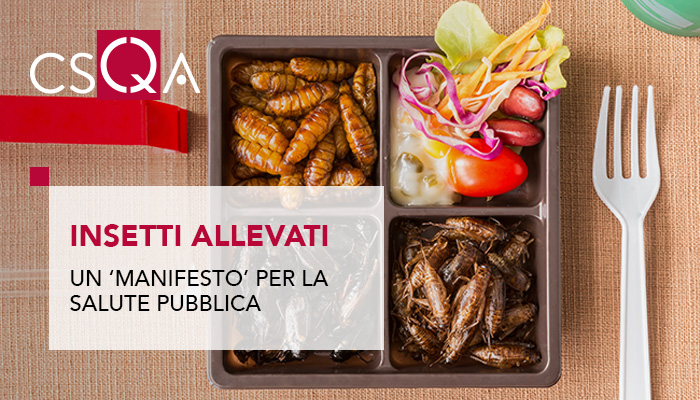
The use of insects in the livestock sector is growing and farms are growing in Europe.
The IZSVE highlights the implications of veterinary public health.
The interest in insects as food and/or feed has seen the consolidation of avant-garde livestock breeding practices. The increase in breeding structures throughout Europe makes it necessary to develop systems and procedures capable of protecting the health of the consumer and of the insect itself.
With a study published in the scientific journal Insects , the Institute analyzes insects as a problem of interest for both human and veterinary public health.
"Whether they are vectors of diseases or food of the future, the close and sometimes forced coexistence between insects and humans underlines the importance of addressing all aspects of this relationship, from the perspective of public health".
THE POSTER
To reduce the distance between these two worlds, the research group of the Istituto Zooprofilattico Sperimentale delle Venezie (IZSVe) provides an overview of the bridging issues between insects and public health.It is a sort of " manifesto " that is aimed at healthcare professionals with very ambitious goals:
- outline and strengthen the role of the public health authority in the different sectors involving insects;
- increase knowledge to improve farming, its management and insect welfare;
- enhance research activities at the insect-public health interface.
EXPERIMENTAL INSECTARIANS
At the Istituto delle Venezie there are two insectariums for experimental purposes: in the first, different species of insect vectors are bred (mosquitoes of the species: Aedes albopictus, Aedes koreicus, Aedes aegypti ), in the second, insect species for food and research use ( Acheta domesticus, Tenebrio molitor and Galleria mellonella ).The Istituto Zooprofilattico delle Venezie proposes the definition of welfare standards and good breeding practices.
Not only that, it is also advisable to apply biosecurity measures to preserve their health status.
"It should be remembered - say the researchers - that public health has been dealing with insects as disease vectors and pests for decades, as vector-borne diseases make up more than 17% of infectious diseases. But in the human food sector, interest in insects as food and/or feed has only recently emerged". (Source: https://www.anmvioggi.it/ )